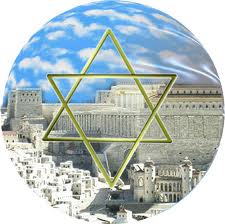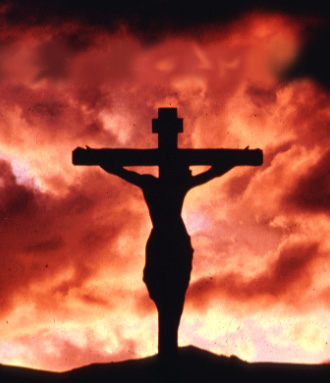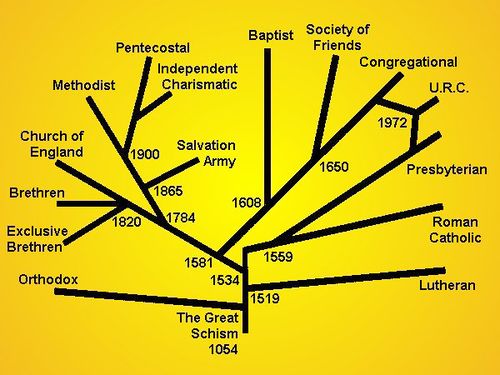Monotheistic Religions: Difference between revisions
m (1 revision imported) |
m (1 revision imported) |
(No difference)
| |
Latest revision as of 08:16, 25 June 2023
Aim: What do the monotheistic religions have in common, besides being monotheistic?
Do Now: In your notebooks, define; Monotheism & Polytheism
Lesson Overview:
| Item | Approx Time |
| Do Now | 3-5 Min |
| Mini Lesson | 15-20 Min |
| Activity | 15 Min |
| Discussion | 5-7 Min |
Judaism

Background
Judaism is the oldest known monotheistic religion still practiced in the world today. Its fundamental teachings have been influential and are the basis for more recently developed religions such as Christianity and Islam.
The Basics
Founder
Abraham is generally recognized as the founder of Moses and the Ten Commandments Judaism due to his covenant with God. However, Moses is also considered a founder due to his role in the liberation of the Hebrews from Egypt, and his delivery of the Ten Commandments from Mount Sinai sometime around 2000 BCE.
Geographic Origin
Developed in the Middle East in and around the area that is currently Israel.
Currently Practiced
Worldwide, but the greatest majority of Jews reside in Israel, the United States, and the former Soviet Union.
Significant Writings
- Torah (1st 5 books of Old Testament, also called the Pentateuch)
- Talmud (Religious Instruction)
Places of Worship
Jews worship in temples called synagogues.
Significant Religious People
Rabbis are Jewish scholars charged with conducting religious services, ensuring that Jewish laws are observed, and serving as a spiritual guide for the community.
Teachings and Beliefs
Judaism teaches that there is one God who is the creator of all things. After the Hebrew exodus from Egypt, many Hebrews began to lose their faith in God. During this time, Moses went atop Mount Sinai and returned with two stone tablets containing laws that all Hebrews needed to follow. These laws, recorded in Exodus 20:3-17, became known as the Ten Commandments and include:
Ten Commandments
- You shall have no other gods before Me.
- You shall not make yourself any graven image, or any likeness of anything that is in the heavens above, or that is in the earth beneath, or that is in the water under the earth. You shall not bow down yourself to them or serve them, for I the Lord your God am a jealous God, visiting the iniquity of the fathers upon the children to the third and fourth generation of those who hate Me, but showing mercy and steadfast love to a thousand generations of those who love Me and keep My commandments.
- You shall not take the name of the Lord your God in vain; for the Lord will not hold him guiltless who takes His name in vain.
- Remember the Sabbath day to keep it holy. Six days you shall labor and do all your work, but the seventh day is a Sabbath to the Lord your God; in it you shall not do any work, you, or your son, your daughter, your manservant, your maid-servant, your domestic animals, or the sojourner within your gates. For in six days the Lord made heavens and earth, the sea, and all that is in them, and rested the seventh day. That is why the Lord blessed the Sabbath day and hallowed it.
- Honor your father and mother, that your days may be long in the land the Lord your God gives you.
- You shall not commit murder.
- You shall not commit adultery.
- You shall not steal.
- You shall not witness falsely against your neighbor.
- You shall not covet your neighbor's house, your neighbor's wife, or his manservant, or his maidservant, or his ox, or his donkey, or anything that is your neighbor's.
Christianity

Christianity is currently the most popular religion in the world based on the number of worshipers found throughout the world. While this monotheistic religion developed from Judaism, there are several key differences in its teachings.
The Basics
Founder
Jesus of Nazareth and his disciples who helped spread his teachings.
Geographic Origin
Developed in Judea (now Israel), located in the Middle East bordering the Mediterranean Sea sometime around the year 30 CE.
Currently Practiced
Christianity is the dominant religion in North America, South America, Europe, and Russia.
Significant Writings
The Holy Bible, consisting of both the Old Testament and the New Testament.
Places of Worship
Christians practice their faith in temples usually referred to as churches.
Significant Religious People
Priests and ministers are Christian holy men and women who are charged with conducting religious services, ensuring that Jewish laws are observed, and serving as a spiritual guide for the community. In addition, deacons, nuns, and monks are people who have dedicated their lives to Christian service.
Teachings and Beliefs
Because Christianity evolved from Judaism, there are certain concepts that these two religions share. For example, both Jews and Christians subscribe to the Ten Commandments found in the Book of Exodus. In addition, prophecies of Jewish prophets contained in several books of the Old Testament stated that God would send a savior, or messiah, to the people of Israel. While Judaism clearly states that this event has not yet occurred, Christians believe that Jesus of Nazareth was the Son of God, sent to redeem the world of sin. This has led the Christian faith to proclaim that there is a Holy Trinity, formed by the Creator (Father), Redeemer (Son), and Sustainer (Holy Spirit). Christians believe that these three entities are all part of a single higher power.
Christians are expected to attend church services regularly, usually on Sundays and holy days such as Christmas and Easter. On these occasions Christians take part in sacraments, which are religious practices such as baptism, and receiving the Eucharist.
Different Denominations

Islam

Islam, which when translated from Arabic, means "to submit to the will of Allah," is the youngest of the world's major religions. Worshipers of this monotheistic religion are known as Muslims, which means "one who submits to the will of Allah." Islam is currently the second most practiced religion in the world, and experts predict that it will overtake Christianity as the most popular religion in the world sometime during the 21st century.
Founder
Islam was founded by the prophet Mohammed.
Geographic Origin
Developed on the Arabian Peninsula in the year 622 CE, and quickly spread to other regions.
Currently Practiced
Islam is most dominant throughout the Middle East, including Southwest Asia and North Africa.
Significant Writings
The teachings of Islam are collected in the Qur'an.
Places of Worship
Muslims may gather to worship in temples called Mosques.
Significant Religious People
The Caliph, or successor to the Prophet Mohammed; Imam, leader of prayers; and the Muezzin, or one who issues a call to prayer, causing the faithful to gather at the local Mosque.
Teachings and Beliefs
Mohammed received the word of God, or Allah, through the angel Gabriel while living in the city of Mecca. Townspeople soon became fearful of the Mohammed's preaching and he began to receive threats. As a result, he fled to the nearby city of Medina, where people began to believe in his message. The flight of Mohammed from Mecca to Median was instrumental to the founding of the religion of Islam, and is known as the Hegira. Thus, in 622 CE Islam was founded and this date became the starting point for the Islamic calendar. Mohammed was a trader.
Mohammed and his followers later returned to Mecca and declared a jihad, or holy war, after which he captured the city. Under Mohammed's leadership, the basic teachings of Islam were established, which are known as the Five Pillars of Islam. Every Muslim is expected to follow these rules in order to lead an ethical life:
5 Pillars of Islam
- Confession of Faith: The belief that "there is no God but Allah, and Mohammed is His prophet."
- Prayer: Muslims must pray five times per day, facing towards Mecca.
- Charity: Muslims must give alms to the poor, and support the local Mosque by donating a portion of their income.
- Fasting: During the Ramadan, the ninth month of the Muslim calendar, all Muslims must fast during daylight hours, except the very young or sick.
- Pilgrimage: If possible financially, each Muslim must make a hajj, or holy pilgrimage, to the city of Mecca.
Classwork & Homework
Lesson PowerPoint: Monotheistic Religions
Lesson Video: [The Three (3) Faiths of Jerusalem
Lesson Activity:
- Write a summary paragraph for each (Judaism, Christianity, Islam). (3 paragraphs)
- Be sure to include the items in your chart for each of the belief systems.
Homework: Assignments